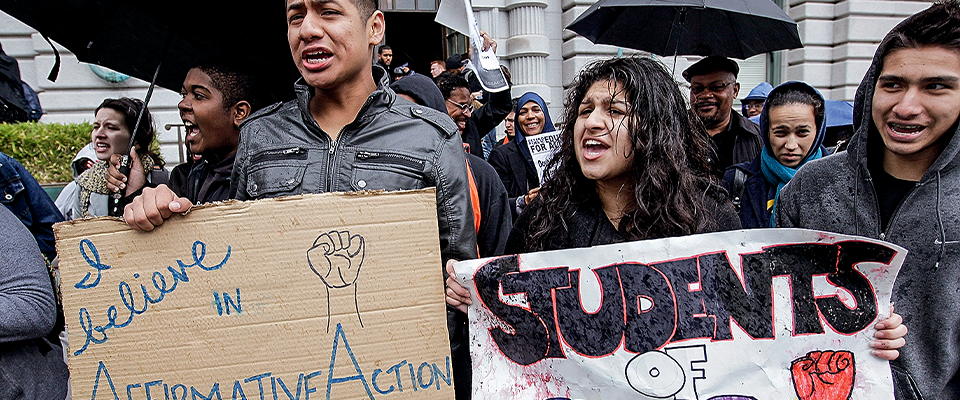Earlier this year, the UC Regents backed the repeal of Prop 209.
In mid-June, the UC Board of Regents held a historic vote, unanimously endorsing a state proposal to repeal Proposition 209, California’s controversial ballot initiative which banned the consideration of race, sex, or ethnicity in public education, employment, and contracting throughout the state.
In the wake of Prop. 209, the University of California has consistently struggled to maintain diverse representation on its campuses, especially at Berkeley and UCLA, the system’s most selective campuses. At Berkeley, the acceptance rate for Black students dropped from nearly 55 percent in 1995 to just over 20 percent in 1998, when Prop. 209 went into effect. In 2016, Black students comprised just 3 percent of Cal’s undergraduate population, down from nearly 7 percent in 1995.
The University has pursued a number of other avenues for improving representation of students of color on campus, including holistic review of applications, additional outreach to minority students, and increased financial aid. Under new assistant vice chancellor and director of undergraduate admissions Olufemi Ogundele, UC Berkeley has just accepted its most diverse class of freshmen in more than 30 years.
The recent vote came against the backdrop of a nationwide reckoning on race touched off by the police killing of George Floyd, and it represented a full reversal for the UC Board of Regents, whose support helped get the initiative passed by voters in 1996. A resolution the regents passed in 1995 had already banned the use of affirmative action in admissions and employment on UC campuses. That resolution in turn inspired Prop. 209, which extended the ban to government institutions statewide.
The issue now goes back to the voters, in part thanks to a coalition of Cal students who succeeded in getting a repeal of 209 on the November ballot, as Proposition 16.
From the Fall 2020 issue of California.



















